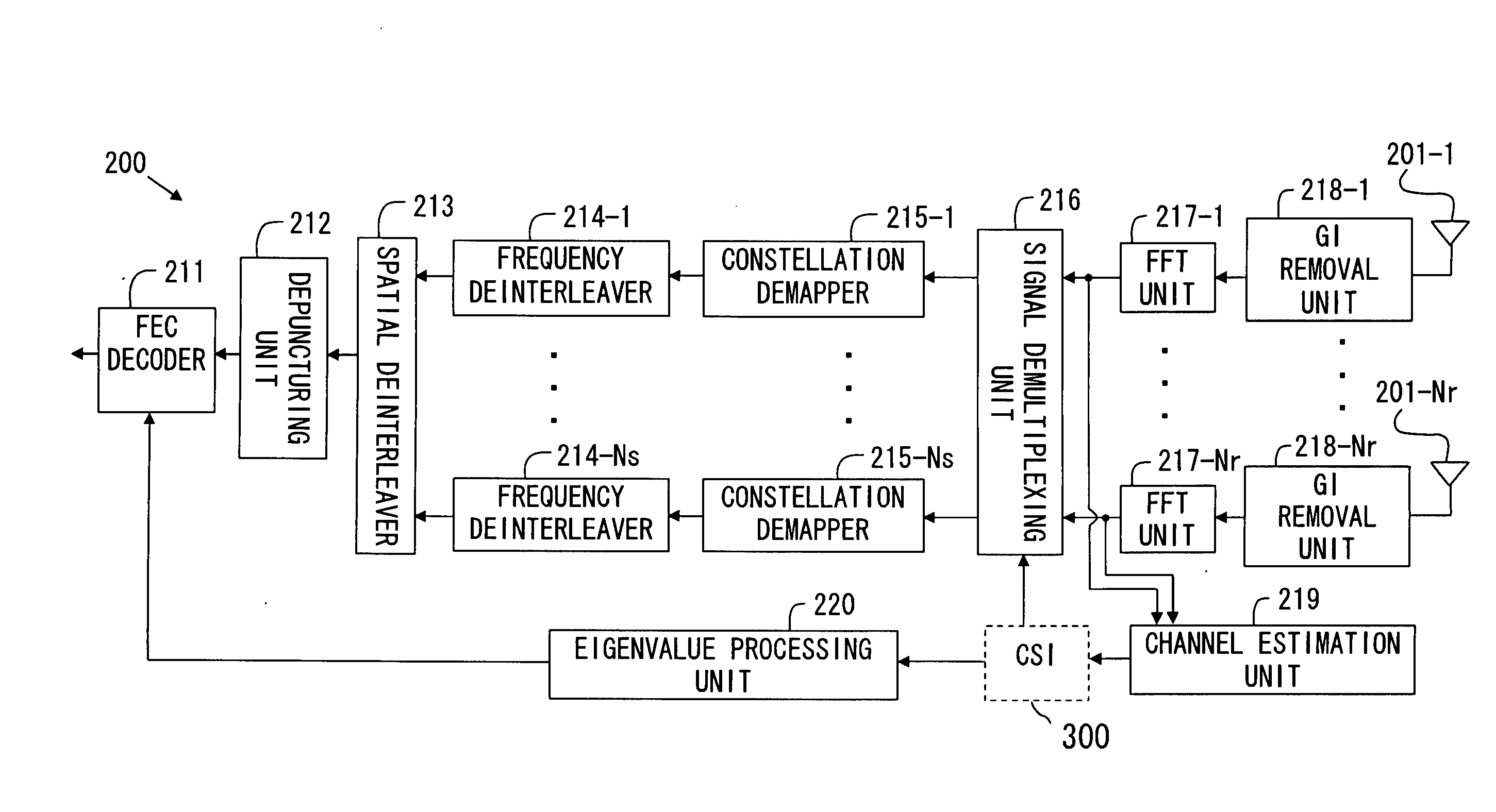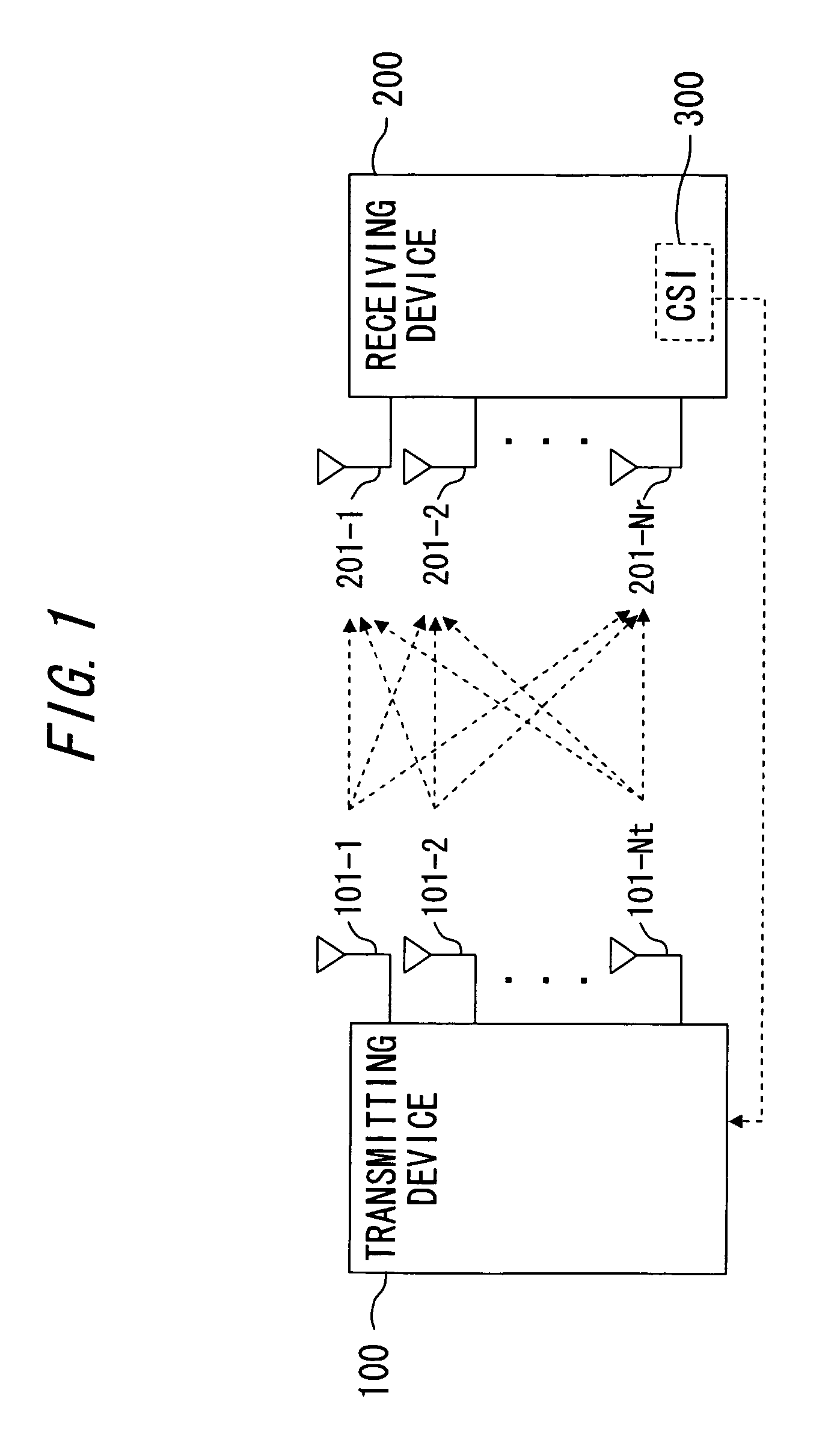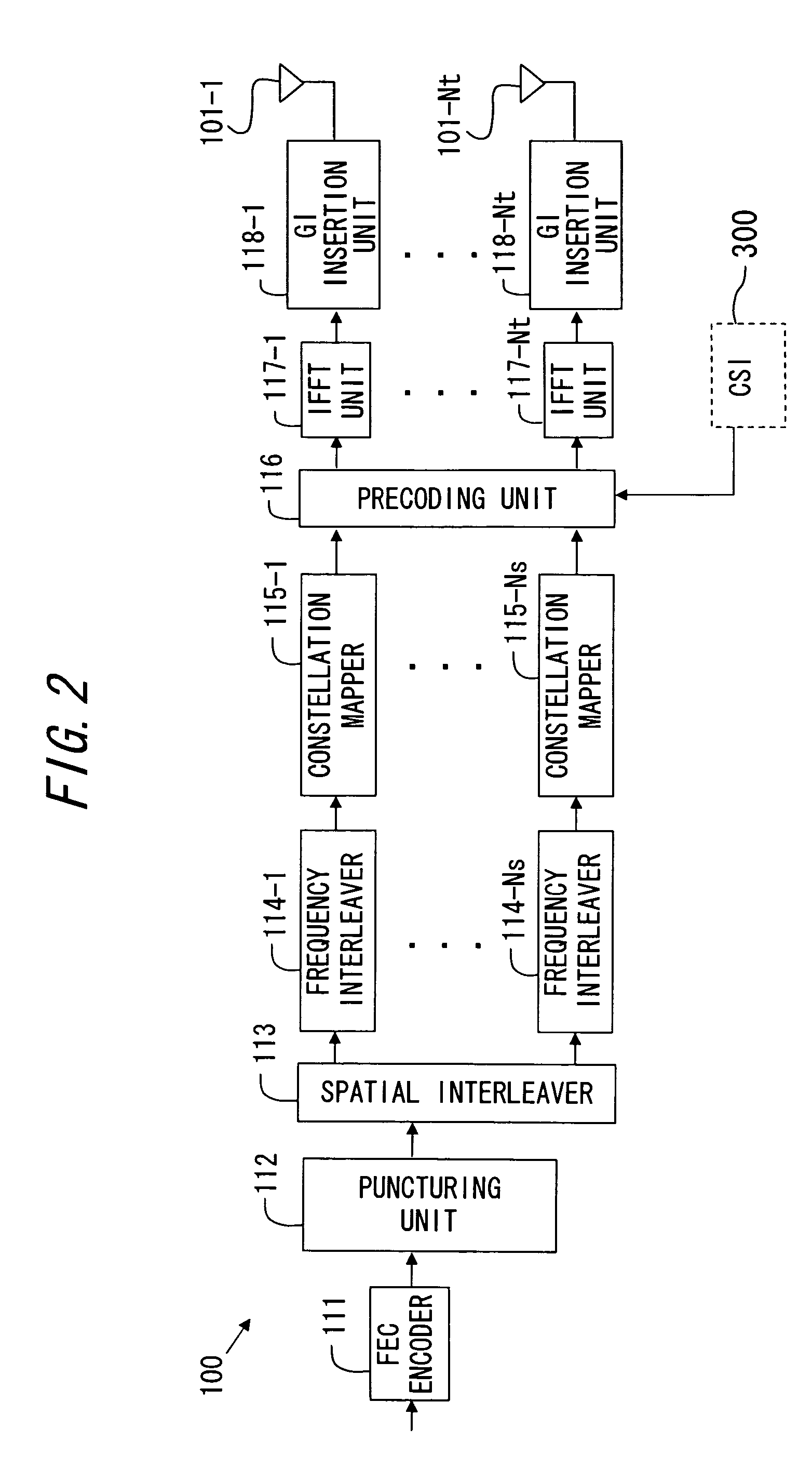Wireless communication system and receiving device
a communication system and receiving device technology, applied in multiplex communication, pulse technique, instruments, etc., can solve the problems of increasing power consumption, expanding the circuit scale, costing, etc., and achieve excellent error rate performan
- Summary
- Abstract
- Description
- Claims
- Application Information
AI Technical Summary
Benefits of technology
Problems solved by technology
Method used
Image
Examples
first embodiment
[0048] The MIMO-OFDM wireless communication system in a first embodiment of the present invention will hereinafter be explained.
[0049] [System Architecture]
[0050] A system architecture of the MIMO-OFDM wireless communication system in the first embodiment will be explained with reference to FIG. 1. FIG. 1 is a diagram showing the system architecture of the MIMO-OFDM wireless communication system in the first embodiment. The MIMO-OFDM wireless communication system in the first embodiment is configured by a transmitting device 100 having Nt-pieces of transmitting antennas 101-1 through 101-Nt, and a receiving device 200 having Nr-pieces of receiving antennas 201-1 through 201-Nr. Thus, a separate configuration into the transmitting device 100 and the receiving device 200 is given in the first embodiment for an explanatory convenience, however, each of the transmitting device 100 and the receiving device 200 may have both of a transmitting function and a receiving function.
[0051] The...
modified example
[0104] In the receiving device in the MIMO-OFDM wireless communication system in the first embodiment discussed above, the FEC decoder 211 performs the Viterbi decoding by utilizing, as the weighting coefficient, the channel eigenvalues corresponding to the subcarrier k with respect to the estimation bit sequence received by each subcarrier k, however, in place of this channel eigenvalues, the SNR of the valid channel may also be used as the weighting coefficient.
[0105]FIG. 6 is a diagram showing a circuit configuration in the modified example of the receiving device in the first embodiment. As illustrated in FIG. 6, the receiving device in the modified example includes an SNR calculation unit 230 as a substitute for the eigenvalue processing unit 220 of the receiving device in the first embodiment. The function units other than this unit are the same as those in the first embodiment, and therefore their explanations are omitted.
[0106] The SNR calculation unit 230 sets H(k)×F(k) s...
second embodiment
[0110] The MIMO-OFDM wireless communication system according to a second embodiment of the present invention will hereinafter be described.
[0111]
[0112] An example of the circuit configuration of the transmitting device 100 in the second embodiment will hereinafter be explained with reference to FIG. 7. FIG. 7 is a block diagram showing an example of the circuit configuration of the transmitting device 100 in the second embodiment.
[0113] The transmitting device 100 in the second embodiment is configured so that the output from the spatial interleaver 113 is, as shown in FIG. 7, inputted to the preceding unit 116, and there are provided other components such as the FEC encoders 111-1 through 111-Nx, the puncturing units 112-1 through 112-Nx, the frequency interleavers 114-1 through 114-Nx and the constellation mappers 115-1 through 115-Nx, of which the numbers each correspond to a parallel process count Nx. Note that this parallel process count Nx may be the same as the number of da...
PUM
 Login to View More
Login to View More Abstract
Description
Claims
Application Information
 Login to View More
Login to View More - R&D
- Intellectual Property
- Life Sciences
- Materials
- Tech Scout
- Unparalleled Data Quality
- Higher Quality Content
- 60% Fewer Hallucinations
Browse by: Latest US Patents, China's latest patents, Technical Efficacy Thesaurus, Application Domain, Technology Topic, Popular Technical Reports.
© 2025 PatSnap. All rights reserved.Legal|Privacy policy|Modern Slavery Act Transparency Statement|Sitemap|About US| Contact US: help@patsnap.com



